Three short slices: Historical resonance
FIDEL (1986)
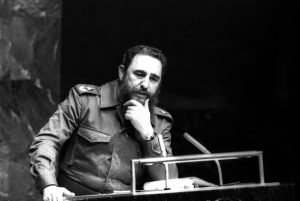 : “The IMF, the financial enforcer of imperialism, strictly demands that Third World countries eliminate fiscal and trade balance deficits, reduce education and health expenditures, eliminate state investments, depreciate the currency, raise the prices of consumer goods and services, suspend restrictions on free imports; in other words, dump the burden of the debt and the crisis on the people, who are already depleted and impoverished.
: “The IMF, the financial enforcer of imperialism, strictly demands that Third World countries eliminate fiscal and trade balance deficits, reduce education and health expenditures, eliminate state investments, depreciate the currency, raise the prices of consumer goods and services, suspend restrictions on free imports; in other words, dump the burden of the debt and the crisis on the people, who are already depleted and impoverished.
However, in Washington, only a few blocks away from the headquarters of the IMF, is the White House, the residence of the US Government, which has incurred the most fabulous and incredible fiscal and trade deficits in the history of the world.
There, in such a nearby place, the IMF has never sent a single expert of its own to demand that the fiscal deficit, trade imbalance, protectionism, dumping, high interest rates, dollar manipulation and other infamous and harmful practices for the world economy cease. Nor does it send experts to the countries of the European Economic Community that flood the world with subsidiary agricultural products in unfair competition with the countries of the Third World, with a selfishness that borders on insanity.
The United States is rearming itself with the world’s money and the IMF remains silent. The United States lives and spends above its own production, at the expense of the world economy, and the IMF remains silent. Such is the economic order that has been imposed on us.”
Arnaud Bertrand currently on a 3 week tour through China
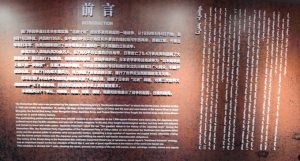 @RnaudBertrand
@RnaudBertrand
We spent the night in the most important WW2 historical site you’ve never heard of: Nomonhan (also known as the site of the battles of Khalkhin Gol), where the Soviet Union defeated Japan in 1939, which changed the course of the war.
Japan and Nazi Germany may have won WW2 were it not for the battles that happened right here during 135 days. Incredibly this episode of the war is virtually untaught in the West, maybe because it didn’t involve the West (which shows how self-centered our version of history is).
During WW2 Northeast of China had been invaded and annexed by Japan, and transformed into a puppet state called Manchukuo. This place is in the extreme West of this former puppet state (which is now back to being Northeast China), on the border with Mongolia and the former Soviet Union (now the Russian border).
At the time, 1939, Japan’s basic strategy for the war was “Northward Advance” (Hokushin-ron), i.e. seizing Siberia for its resources as far as Lake Baikal.
The USSR obviously begged to differ and Stalin sent General Zhukov, one of his best men (the future Marshal of the Soviet Union) on site to fight the Japanese back.
Long story short, the battles that ensued – with 200,000 soldiers on the battlefield – lastest 135 days and were the earliest large-scale 3-dimensional warfare in military history. It ended in a humiliating Japanese defeat which some Japanese historians call “the greatest defeat in the history of the Japanese army”, with 54,000 casualties.
The most important consequence of the battles that were fought here is that the Japanese completely changed their strategy from “Northward Advance” to “Southward Advance”, favoring seizing the resources of Southeast Asia instead of those of Siberia.
Masanobu Tsuji, the Japanese colonel most instrumental in these battles became “the most determined single protagonist in favor of war with the United States” and one of the strongest proponents of the attack on Pearl Harbor inside the Japanese army (according to postwar testimonies), having been traumatized by his experience of fighting the Soviet Union. The US was of course the biggest power the Japanese would have to confront by pursuing the “Southward Advance” strategy since only the US Pacific Fleet stood in the way of seizing the oil-rich Dutch East Indie.
In fact, the Nomonhan battles traumatized the Japanese so much that they didn’t dare fight the Soviet Union again for the remainder of WW2. Even when their ally Nazi Germany opened the Eastern Front the Japanese army adopted a resolution “not to intervene in German-Soviet war for the time being”, leaving Hitler to fight the Soviet Union on his own, which would ultimately prove to be his demise.
So it’s no exaggeration to say that had the battles here not been fought or had the Japanese won, WW2 would have most likely turned out dramatically different. Pearl Harbor wouldn’t have happened, and Japan would have likely helped Nazi Germany fight the Soviet Union by opening a front to the East.
Nomonhan may in fact have been the most consequential battles of WW2!
Historical Vids
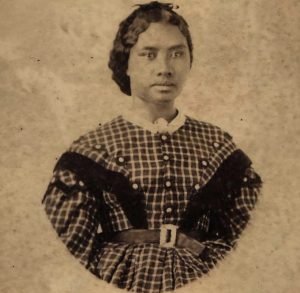 This is Princess Lili’uokalani. She became the last sovereign ruler of Hawaii. The photo was taken in 1859 when she was only 21 years old.
This is Princess Lili’uokalani. She became the last sovereign ruler of Hawaii. The photo was taken in 1859 when she was only 21 years old.
In 1874, Lili’uokalani’s brother, David Kalakaua, became king, and a few years later, she was named the heir apparent. She spent the next few years building schools for the people of Hawaii.
In 1881, Liliuokalani served as regent while the king was away on his tour of the world. When a smallpox epidemic broke out on the island of Oahu, she made the quick decision to close down all its ports, which helped contain the spread and ended up saving many lives. However, her decision irked many of the wealthy sugarcane plantation owners.
In 1891, her brother died, and she became the ruler of Hawaii. Unfortunately, her reign would be very short-lived as a coup led by Sanford Dole (his cousin founded the Dole Food Company) and several other white businessmen and lawyers, with the backing of the United States, would annex the islands. Two years later, when Lili’uokalani and her supporters attempted to return to power, she was charged with treason and forced to go under house arrest. In order to pardon her supporters, she agreed to yield her power to the United States.
“Now, to avoid any collision of armed forces and perhaps loss of life, I do, under this protest, and impelled by said forces, yield my authority until such time as the Government of the United States shall, upon the facts being presented to it, undo the action of its representative and reinstate me in the authority which I claim as the constitutional sovereign of the Hawaiian Islands.”
She spent the remainder of her life in exile until her death in 1917 at age 79.


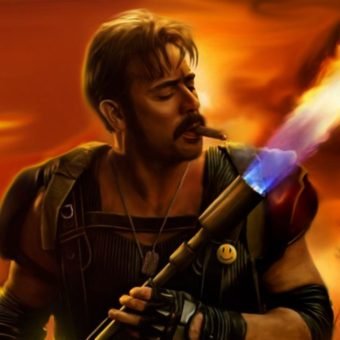

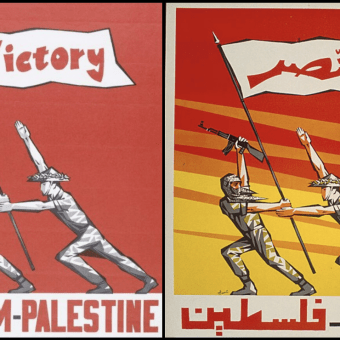
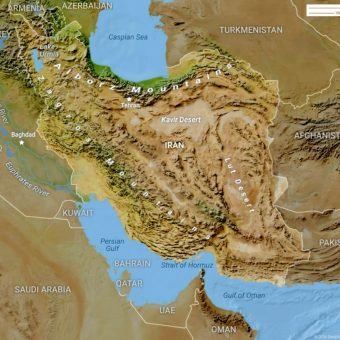

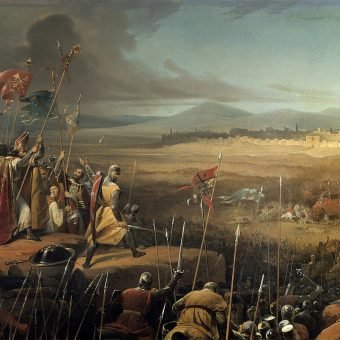
The turn to South > a paper> https://link.springer.com/chapter/10.1007/978-1-349-20333-8_13 Additionally> This turn was, it’s said, decided by an “accident (!)…se the curious affair of Atlantis (raider) and Automedon – the affair stinks of intel op by Brit to induce Japan to attack the US. Certain superdouperdoubesecret papers Yamamoto fell for the… Read more »
Good stuff, Amarynth.
Martyanov just mentioned yesterday in his forum comments the battle of Khalkhin Gol.
Synchronicity!